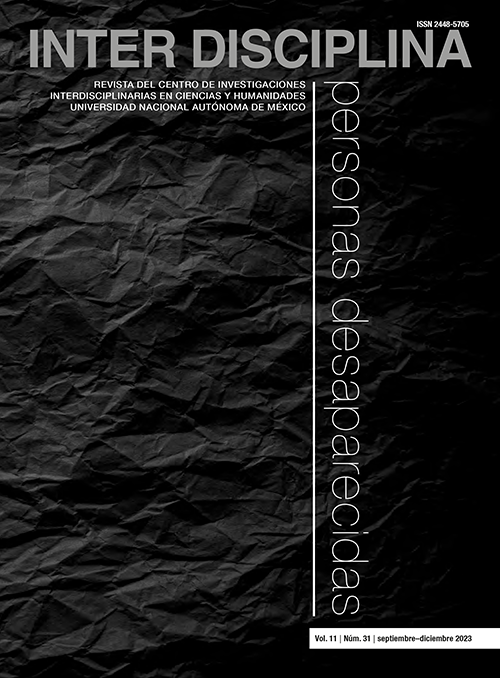Behavior of the demand for drinking water consumption by zones in Mazatlan, Sinaloa
Main Article Content
Abstract
Water is an indispensable good for society, in recent decades emphasis has been placed on the importance of its consumption and responsible use. There are several factors that have increased the use of water, such as population growth, urban expansion and the increase in people's income. In this sense, the present study analyzes the demand for water consumption, for which a time series econometrics methodology is proposed with data from the Municipal Board of Potable Water of Mazatlán, Sinaloa; likewise, emphasis is placed on goal eleven "Sustainable Cities and Communities" for Sustainable Development of the United Nations and Latin America ECLAC (2018). The main results, they show that consumption during the pandemic was higher than consumption before the pandemic. Also, it is observed that, when taking the classification of areas of the neighborhoods of the Municipal Planning Institute, it is observed that the areas close to or that include the tourist strip decreased their consumption during the pandemic and in the areas of the periphery increased the consumption of drinking water. One of the reasons that explains such behavior is the global confinement due to the SARS-Cov-2 pandemic.
Downloads
Article Details
Citas en Dimensions Service
References
Adeyeye, K., Gibberd, J., Chakwizira, J. 2020. Water marginality in rural and peri-urban communities. https://doi.org/10.1016/J.JCLEPRO.2020.122594.
Babel, S., Shinde, V., Sharma, D., Nguyen, M. 2020. Measuring water security: A vital step for climate change adaptation. https://doi.org/10.1016/J.ENVRES.2020.109400.
Cetin, O., Kara, A. 2019. Assesment of water productivity using different drip irrigation systems for cotton. Agric. Water Manag. 223. https://doi.org/10.1016/j.agwat.2019. 10569.
Colby, B. 2020. Acquiring environmental flows: ecological economics of policy development in western U. S. https://doi.org/10.1016/J.ECOLECON.2020.106655.
Comisión Económica para América Latina (CEPAL). 2018a. Agenda 2030 y los objetivos de desarrollo sostenible: una oportunidad para América Latina y el Caribe. https://repositorio.cepal.org/bitstream/handle/11362/40155/24/S1801141_es.pdf.
Comisión Económica para América Latina y el Caribe (CEPAL). 2018b. Segundo informe anual sobre el progreso y los desafíos regionales de la Agenda 2030 para el Desarrollo Sostenible en América Latina y el Caribe. (LC/FDS.2/3/Rev.1), Santiago. https://www.cepal.org/es/publicaciones/43415-segundo-informe-anual-progreso-desafios-regionales-la-agenda-2030-desarrollo.
Comisión Nacional del Agua (Conagua). 2020. Calidad del agua en México. https://www.gob.mx/conagua/articulos/calidad-del-agua#:~:text=La%20calidad%20del%20agua%20se,a%20trav%C3%A9s%20de%20un%20sem%C3%A1foro.
Crosson, C., Tong, D., Zhang, Y. y Zhong, Q. 2021. Rainwater as a renewable resource to achieve net zero urban water in water stressed cities. https://doi.org/10.1016/J.RESCONREC.2020.105203.
Demi, Z. y Ya, C. 2020. Urban water security assessment in the context of sustainability and urban water management transitions: An empirical study in Shanghai. https://doi.org/10.1016/j.jclepro.2020.122968.
Franco, M., Kvålshaugen, R., Ugarelli, R. 2021. Understanding the governance of urban water services from an institutional logics perspective. https://doi.org/10.1016/J.JUP.2020.101159.
Knoke, T., Gosling, E., Paul, C. 2020. Use and misuse of the net present value in environmental studies. https://doi.org/10.1016/J.ECOLECON.2020.106664.
Löwe, R., Mair, M., Pedersen, A., Kleidorfer, M., Rauch, W. y Arnbjerg, K. 2020. Impacts of urban development on urban water management – Limits of predictability. https://doi.org/10.1016/J.COMPENVURBSYS.2020.101546.
Meng, C. 2021. Water balance scheme development for urban modelling. https://doi.org/10.1016/j.uclim.2021.100843.
Murillo, Fernando. 2016. Ciudades primadas latinoamericanas: ¿hacia una nueva agenda urbana de mejoramiento y prevención de asentamientos informales? Cuaderno Urbano, 21(21): 137-166.
https://revistas.unne.edu.ar/index.php/crn/article/view/1182/972.
Organización de las Naciones Unidas. 2015. Asamblea General “Transformar nuestro mundo: la Agenda 2030 para el Desarrollo Sostenible”, Nueva York, 25 al 27 de septiembre. https://unctad.org/system/files/official-document/ares70d1_es.pdf.
Rai, R., Neupane, K., Bajracharya, R., Dahal, N., Shrestha, S. y Devkota, K. 2019. Economics of climate adaptive water management practices in Nepal. https://doi.org/10.1016/J.HELIYON.2019.E01668.
Secretaría de Turismo Sinaloa. 2022. Datatur: Análisis integral del turismo. https://www.datatur.sectur.gob.mx/ITxEF/ITxEF_SIN.aspx.
Tongbin, Y., Yingming, Z., Yulian, l. y Bo, Z. 2021. Achieving win-win policy outcomes for water resource management and economic development: The experience of chinese cities. https://doi.org/10.1016/j.spc.2021.02.006.
Universidad Nacional Autónoma de México. 2017. Perspectivas del desarrollo a 2030, Programa Universitario de Estudios del Desarrollo, México. http://132.248.170.14/publicaciones/34/Perspectivas_2030.pdf.
Zhou, D., Liu, T., Han, B., Wang, N., Peng, C. y Gao, X. 2021. Towards defending against adversarial examples via attack-invariant features. Proceedings of Machine Learning Research, PMLR, 139: 12835-12845.

Esta obra está bajo una Licencia Creative Commons Atribución-NoComercial-SinDerivar 4.0 Internacional.





